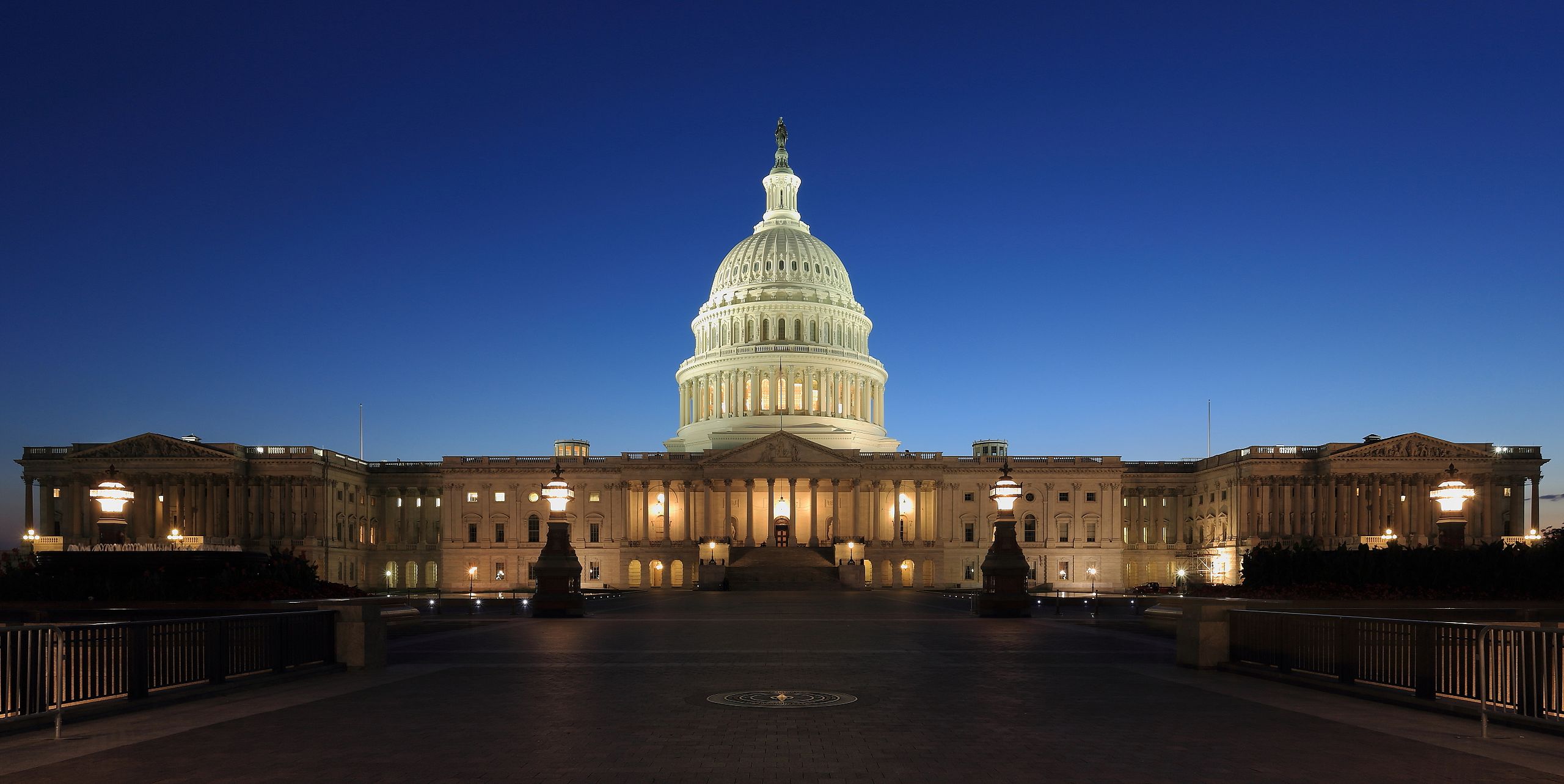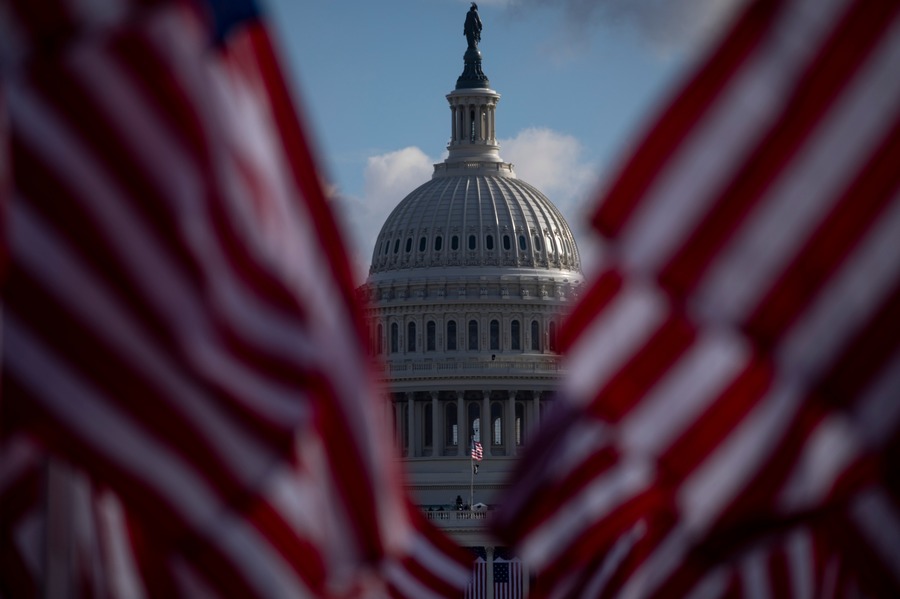The Situation: Assessing the Shutdown

The Situation on Friday threw cold water on the commentariat’s sudden excitement at the Supreme Court’s handling of the tariffs case.
Today, let’s talk about what the government shutdown has accomplished—now that it appears to be on the verge of ending in the face of capitulation by enough Senate Democrats to allow debate to begin on a resolution to reopen the government.
As an exercise in prospective benchmarking, I laid out in “The Situation” on Sept. 30 exactly what I thought a shutdown would need to accomplish in order to be worth doing, noting that “there’s more to this battle than health care funding, as important as that may be for tens of millions of people.”
The shutdown would “be costly but worthwhile,” I argued, “if congressional enactments are able to do more work both in compelling and in restraining the president after the shutdown fight than before.”
But there’s a catch, I also argued: You can’t play the game as a congressional minority party unless you’re willing to see it through:
If you’re going back down in 24, 48, or 72 hours, throw in the towel now before a shutdown even starts. Nothing is weaker than setting up a fight and then flinching from it as soon as it starts—though for some reason, this point never sticks to a man who earned the nickname TACO and has made a signature move out of setting a deadline and then blowing past it. But it will stick to congressional Democrats, life being unfair. Doing that is unfair to the men and women who will lose their jobs in the first several days of this shutdown. If you’re going to play this game, you have a moral obligation to win it.
So with this as the baseline standard I set out, let’s examine what Senate Democrats got in exchange for their flinch after 41 days.
Did they get the demanded concessions on Affordable Care Act subsidies? No. They got a promise for a vote on it later in the year—one on which they will not prevail.
Did they get any “real assurances Congress’s word means something and still commands respect”? No. The administration is no less free to act lawlessly than it was before the shutdown.
The most Democrats can honestly say they accomplished is reversing some of the damage inflicted on federal employees by the shutdown itself. Dismissals of federal workers will apparently be reversed, and furloughed workers will get paid.
But that and more, of course, was accomplishable by not having a shutdown in the first place. Not all of the damage will be undone. Many federal workers have had to spend time at food pantries over the past month, after all.
By any reasonable standard, to put it simply, the Democratic tactics would have to be judged a total failure: They got nothing in exchange for the pain they inflicted. They went to war, with federal workers and recipients of government services bearing the risk of the battle, unprepared to do what it would take to win. They lacked the moral seriousness not to play at all if they weren’t going to have the fortitude to see the matter through.
To be clear, I’m not saying it’s obvious that the Democrats who voted to fold were necessarily wrong to do so. A shutdown inflicts real pain on real people—both government workers and people who rely on government services. And the longer it goes on, the more pain it inflicts. At some point, that pain does exceed whatever marginal benefit the policymaker thinks he or she can extract by extending it. And at that point, folding is the right play. The sunk costs fallacy is a real thing, and throwing good money after bad is the essence of irrational behavior.
What is obvious, however, is that the Democrats who both voted to initiate the shutdown and then caved in the face of no material change of circumstance were either wrong 41 days ago or are wrong now.
They may have a political argument, as opposed to a policy argument, that they actually accomplished something here. The past few weeks have made abundantly clear, after all, that increased health care premiums for a great many people are a direct consequence of Trump administration and congressional Republican legislative decisions. With Democrats having just performed well in off-year elections around the country, this is not a crazy message—speaking from a political point of view—to have set up going into a year of midterm elections. The shutdown will allow Democrats nationwide to run on the argument that voter premiums have gone up because there are not enough Democrats in office and too many Republicans. They will be right. And I suspect the argument may be an electorally powerful one.
Note that even Trump’s stubbornly resilient poll numbers are taking a hit right now. The period of the shutdown has seen his approval rating sink not merely below its long-running floor of 43 percent in Nate Silver’s polling average but below 42 percent. These are small, even vanishingly small, changes, but Trump’s popularity is highly resistant to change—and his numbers are actually changing.
Note as well that had the Democrats behaved in a more moral, more leaderly fashion and either not engaged the fight if they were not willing to win it or, having done so, not caved, they might not have this argument. Had they won, after all, they would have saved Trump and congressional Republicans from their own terribly unpopular decisions. They wouldn’t be able to go into the coming year arguing that “they,” meaning Republicans, raised “your,” meaning voter, health care premiums. They would have at most been able to argue that “they” tried to raise your premiums and that “we,” meaning Democrats, saved you from that. But disasters that didn’t happen seldom move voters. Disasters that do happen animate voters, who want accountability for them.
I do not doubt that caving now might well be the optimal political move.
And this is one reason—one of many—why I am not a politician.
Because if caving is the right thing to do now, it was the right thing to do 41 days ago and Democratic senators should have been willing to stand up and look their constituents in the eye and say, “I don’t think we will get anything in a shutdown that exceeds in value the pain we will inflict.” Some did this, and that actually took courage.
But if caving was not the right thing to do then, it is no more so the right thing to do now. Because nothing has changed except that reasonably anticipatable pain is now realized pain. It took exactly no imagination to fathom that this would happen.
Nothing else is really different.
And The Situation continues tomorrow.





